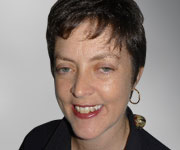THERE’S nothing like surprising your medical colleagues. Almost a year ago, I announced to some colleagues that, after 6 or so years primarily in private practice as a psychiatrist, I was shutting up shop and returning to work as a staff specialist in a busy public hospital.
There was a notable pause before the congratulations ensued.
Friends and private patients asked me why I was going to work in the public sector. I gave a mixture of responses, such as wanting to improve “the system”, becoming more involved in teaching, and a desire to use my skills with those unable to pay privately for them.
Personally, with my children getting older, I felt I had more energy — and hopefully more wisdom and patience — to invest in an often demanding health system.
I’m now not quite at my first anniversary of being fully back in the public sector. Professionally, it has been both challenging and rewarding.
I’m lucky enough to work in a teaching hospital small enough to enable personal relationships to be the key currency of professional connections. My immediate colleagues are a small but cohesive group, who meet regularly to discuss service and clinical difficulties (there are always several to raise) in a thoughtful manner.
Our management is happy to listen to new ideas, although (it goes without saying) that innovation must always involve innovation with the budget as well. Relationships between professions are respectful, and the “us” and “them” dynamics that I have experienced elsewhere seem little apparent. The passion and commitment of staff are evident throughout the hospital.
The clinical variety is considerable, with the need for further study and reflection much in evidence. I am often reminded of Hippocrates’ aphorism “ars longa, vita brevis” (life is short, the craft long) as I search online for the latest information on treatments and complications to discuss with my patients.
The work can be difficult, but it is a privilege to work with people often at their most vulnerable — frequently people I would not have seen in private practice because they could not have paid for my services there. A sense of contributing to social justice has been one reward of my return to the public sector.
It is not, however, all a land of milk and honey. Being on-call is tiring, and can be stressful at times when there is demand for inpatient services but access block preventing patients being admitted. Somehow, the hospital and I have found a path through these occasions, again with the goodwill of many staff who work together to ensure a bed is found for someone who needs it.
Other challenges include the stark realities of the gaps in our system generally, with care provided to those with intellectual disability being one example. It’s hard not to feel guilty when a person is sent away because their needs are not part of our purview, particularly when I’m aware what limited options are available anywhere.
Although it feels a bit “infra dig” to mention remuneration, it is true that a staff specialist earns less than someone in the same specialty in private practice. This difference is less stark in my non-procedural specialty than in others, but must be acknowledged.
There are the benefits of being an employee: paid holidays, study leave and a training allowance (with some irritations attached — just ask me about the interpretation that a computer does not constitute study “equipment”) and no late-night chat sessions with my accountant discussing the benefits of cash versus accrual accounting.
The money — even if it is less than I could earn elsewhere — arrives with pleasing regularity in my bank account, with the needful done.
The inexplicable delays in organising some basic things like email access has provided ample opportunity for me to revise the serenity prayer. I suggest all staff specialists keep a copy near their elderly computers to assist them in times of bureaucratic or information technology crisis.
Another challenge can be the freedom to join in public debate, even in a forum such as this. The NSW Health code of conduct reminds me of many very pertinent and sensible things, but also that I must not use my job title when engaging in sociopolitical debate; hence my “vanilla” listing in this piece.
I have watched a few colleagues thoughtfully ignore this stipulation and speak out on issues they feel are in the public interest, and I wonder how I would manage if (or when) I were in the same situation.
I have spoken about my own outcomes in this debate, but little about the outcomes of those who matter most in any health debate — the patients. It seems to me that the jury is out on whether the public or private sector provides the best outcomes, with lack of access to data limiting the confidence with which conclusions can be drawn.
From my personal viewpoint, it matters less to me how health care is delivered than how it can be accessed. At present the rather fragmented Australian health care system allows only some people access to private health care, and this seems inequitable.
If we want private and public good for ourselves and our patients, we need to consider how the principle of universal access can more effectively integrate both sectors.
This would be truly innovative.
Dr Diana McKay is a psychiatrist in a public hospital in Sydney, NSW.
This Opposing Views article appears as a Rapid Online Publication in the MJA. It is reproduced with permission of the MJA. Please click here to read the opposing view by Dr Terry Coyne.
Posted 27 April 2011

 more_vert
more_vert